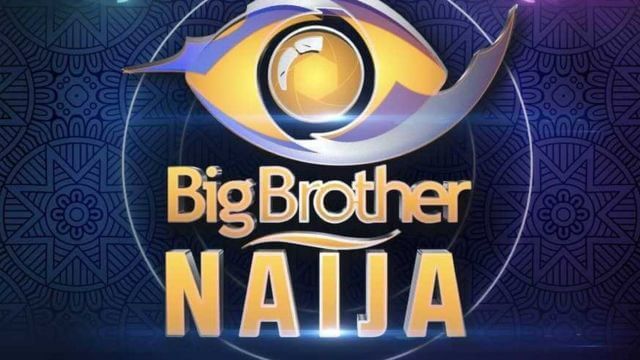The BBNaija reality TV show may have attracted intense knocks from conservatives. However, EHIME ALEX takes a look at how the show impacts the Nigerian economy
The production cost of Africa’s biggest reality television show, Big Brother Naija, is huge. About 25 known brands have pooled resources to sponsor the ongoing BBNaija ‘Season 6’. A lot goes into the production of the show every season, according to the organisers, MultiChoice.
“We ensure that we deliver a great show each season, and this includes the look and feel of the house, which is an integral part of the show,” the Managing Director of MultiChoice Nigeria, John Ugbe, said at an official function. “We will continue to maintain high level of production standard to bring to our customers a show like never before seen from Nigeria.”
This year’s edition, christened ‘Shine Ya Eye’, has Abeg Technologies Limited as the headline sponsor, and Patricia Technologies Limited as the associate sponsor, promoting the show with a combined sum of not less than N3bn.
Despite the negative effect of the Coronavirus Disease on the global economy last year, the Season 5 reportedly gulped a whopping N3.5bn for its production. While it was said to have raked in N12bn – with Betway, Indomie, Guinness, TravelBeta and others raising N11bn as sponsorship.
“We are excited to have Abeg for the 6th season of the BBNaija reality show,” Ugbe said.
Abeg is a financial technology platform that supports peer-to-peer mobile payment with a fantastic feature of soliciting funds, provides users with multiple features, including referral programme, shared spending, payment scheme, and give-aways among others. The counterpart sponsor, Patricia, is a simple, safe and secure platform that provides alternative solutions to payments through the use of bitcoin, perfect money and gift cards.
“Abeg is a young and creative fintech business with passion for providing its customers with payment experience, just as we are committed to connecting our customers with stories and experiences they love. We believe that this new partnership with Abeg will deepen the engagement with our customers and fans of the show, even as we look forward to a great season,” Ugbe added.
The Head of Payments Technology and Infrastructure for SystemSpecs, Mujib Ishola, is not a fan of the BBNaija show because he believes that the time and resources could be put to better use for the good of society.
He, however, said, “I believe BBN offers the brands that choose to leverage it an avenue to connect with their audience, since they would likely be glued to it. This is especially because brands get the opportunity to reinforce themselves and achieve extensive visibility. Their choice to sponsor BBNaija is a business decision.”
Upgrade on BBNaija ‘Season 6’
There is a whopping N90m winner-takes-all prize for Season 6. This will be the highest prize a winner of the reality show will be receiving since the debut in 2006.
According to the organisers, the prize includes a N30m cash prize, cash in Abeg digital wallet, bitcoins courtesy Patricia, a two-bedroom apartment courtesy of RevolutionPlus Property, a top of the range SUV from Nigerian automaker, Innoson Motors, and a trip for two packaged by Travelbeta.
Spiced with a special double opening on Saturday, July 24, and Sunday, July 25, the sixth edition will run for 72 days, closing on October 3.
While United Kingdom fans will, for the first time ever, have access to the live show 24/7 via Showmax, and no SMS voting allowed for this season, fans of the reality TV show will vote for their favourite housemates for free on BBNaija’s official website and mobile app as well as on the MyDStv and MyGOtv apps.
There is also a Fave Lock-In competition, where 30 BBNaija fans will have a chance to win N1m each, when the housemate they ‘Lock-In’ wins the sixth season of the show.
“Fans will be able to lock in the contestant they believe will win between July 29 and August 2, 2021,” MultiChoice disclosed when the show started.
However, the reality TV show, which has left intense criticisms among many conservatives, remains popular among young Nigerians and Africans, gaining traction, as more time and investment go into the promotion of the show and ensuring it dominates conversations.
Economic significance to Nigeria
According to Trading Economics’ global macro models and analysts’ expectations, the Nigerian Gross Domestic Product is expected to reach $440bn by the end of 2021. In the long-term, the country’s GDP is projected to trend around $445bn in 2022 and $450bn in 2023.
While such issues as informality, lack of essential skills, funding, gender gap and other backlogs persist and have far-reaching consequences on the creative sector’s prosperity, a survey by Jobberman showed that Nigeria’s creative industry currently employs an estimated 4.2 million people, making it the second-largest employer, with the potential to create additional 2.7 million jobs by 2025.
This sector is set to contribute N5tn to the country’s GDP and is expected to worth over $6bn this year. According to the National Bureau of Statistics, arts, entertainment and recreation contributed N239bn (2.3 per cent) to Nigeria’s GDP in 2016, and valued at N156.5bn in 2018.
In 2019, the Lagos Chamber of Commerce and Industry called for fresh investment in Nigeria’s creative industry.
“It is a growing industry, but we need to clean our system to do business the way it is done globally. We are not investing enough in this industry, and this is the only way to go to take the industry to its desired position,” said LCCI President, Babatunde Ruwase, at the inauguration of its Creative, Entertainment and Sports Group in Lagos.
Also, at a creative entrepreneurs summit in 2019 tagged ‘Creative Industry in Nigeria: The Emergence and Opportunities for Entrepreneurs’, the Minister of State for Industry, Trade and Investment, Aisha Abubakar, noted that the Nigerian creative industry had the fastest growth rate in the world.
Enabler of economy growth
McKinsey and Company reported that between 2014 and 2019, Nigeria’s bustling fintech scene raised more than $600m in funding, attracting $122m (25 per cent) of the $491.6m raised by African tech startups in 2019 alone – second only to Kenya.
Fintechs, it added, have the capacity to create impact in three broad dimensions through stimulating economic activity, creating a multiplier effect and driving progress towards development goals.
“Fintech can support Nigeria’s human capital development by driving financial inclusion and literacy through the provision of accessible and affordable financial products that are innovative and cater for the needs of unbanked and underserved segments of the population across culture, gender and geography,” the firm stated.
According to the latest report from the Central Bank of Nigeria, the total volume and value of electronic payment transactions increased to 5.08 billion and N783.17tn between January and August 2020. Mobile app transfers (not mobile money) stood at 249.08 million and N19.38tn in the same period.
Get real time update about this post categories directly on your device, subscribe now.



